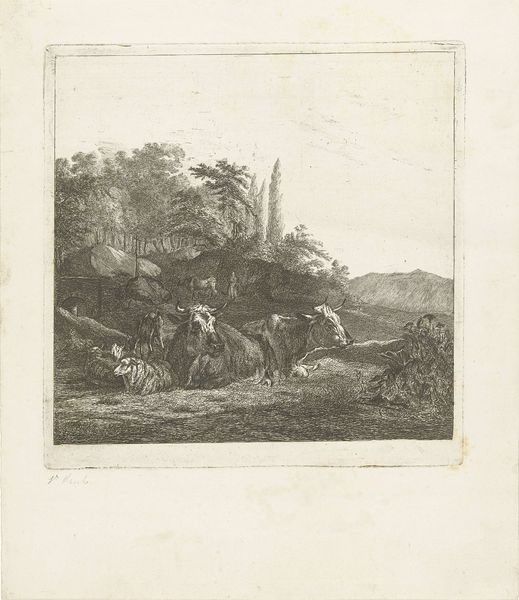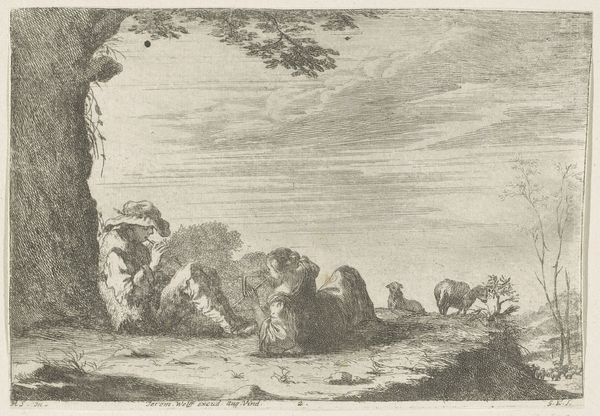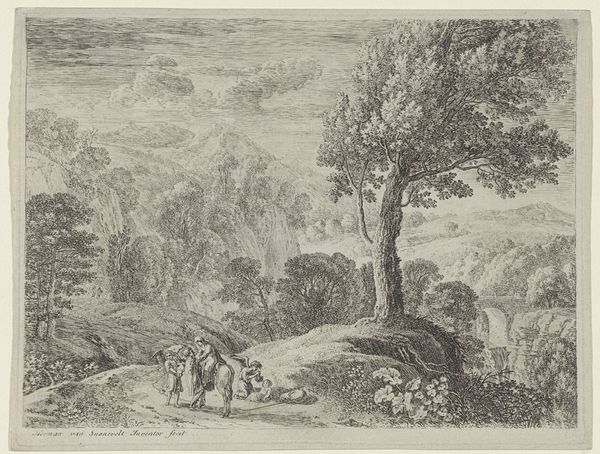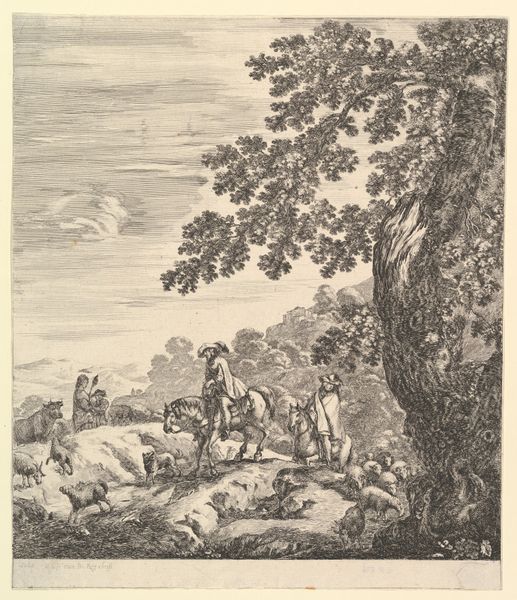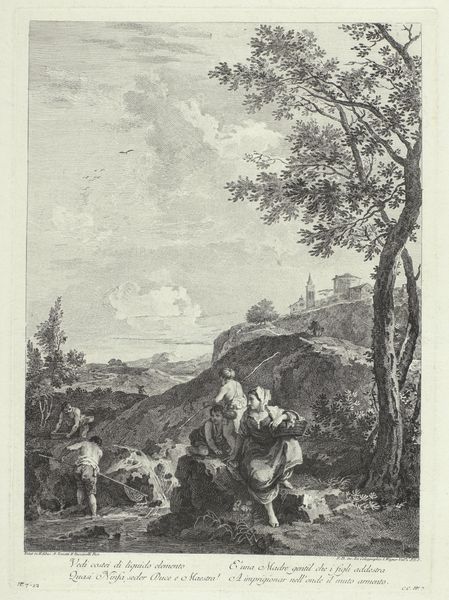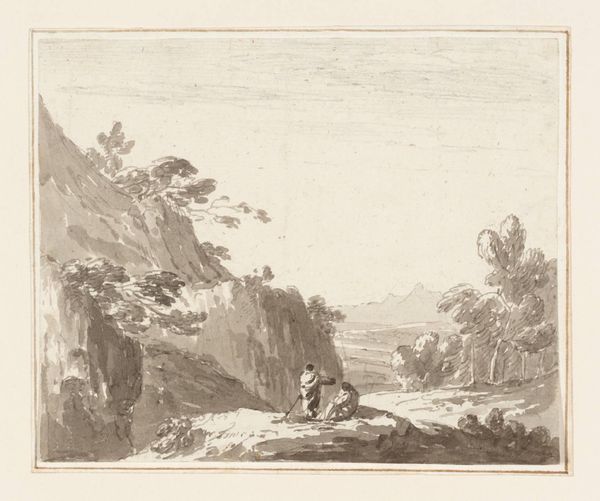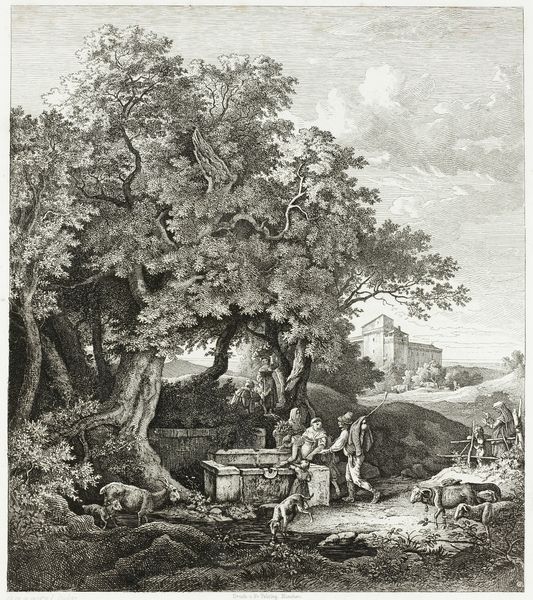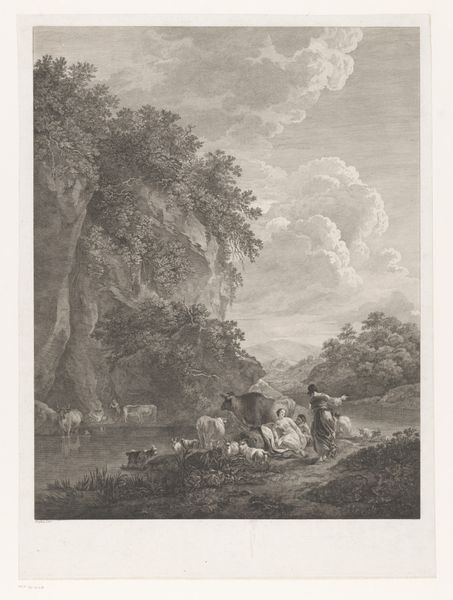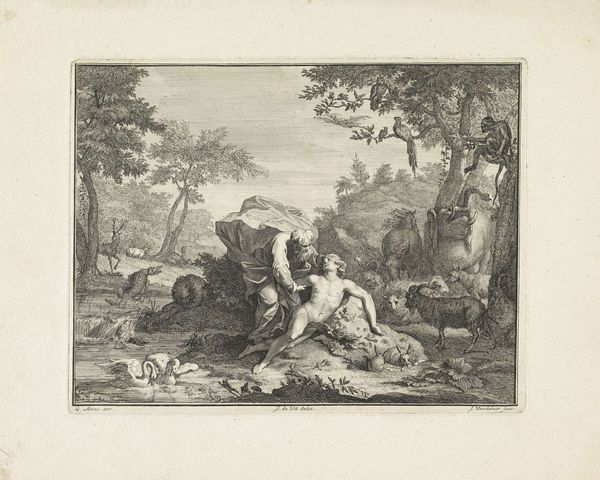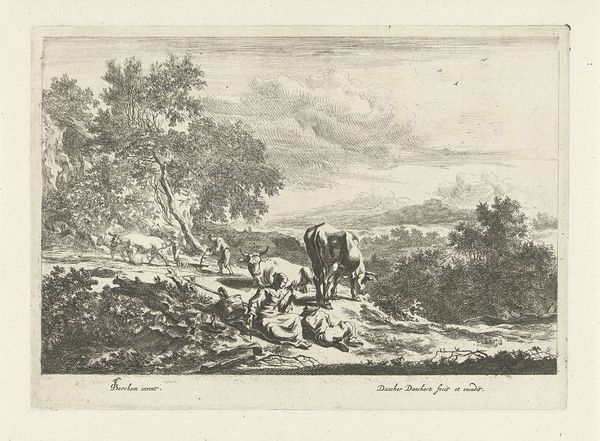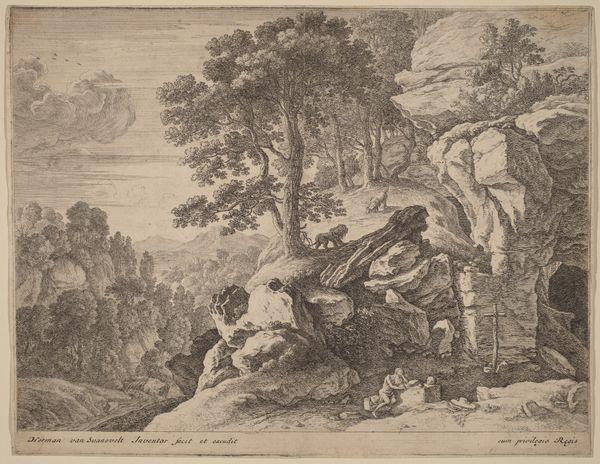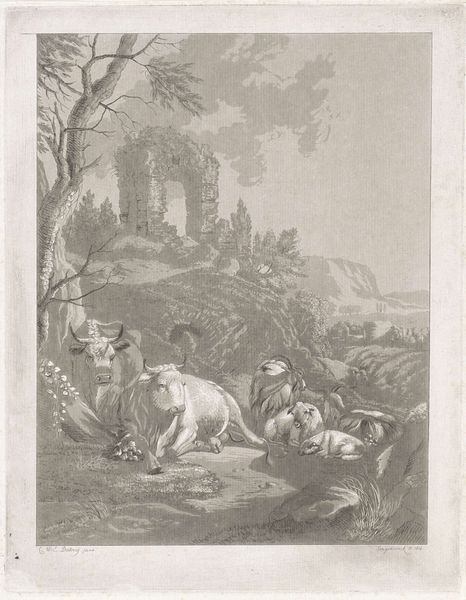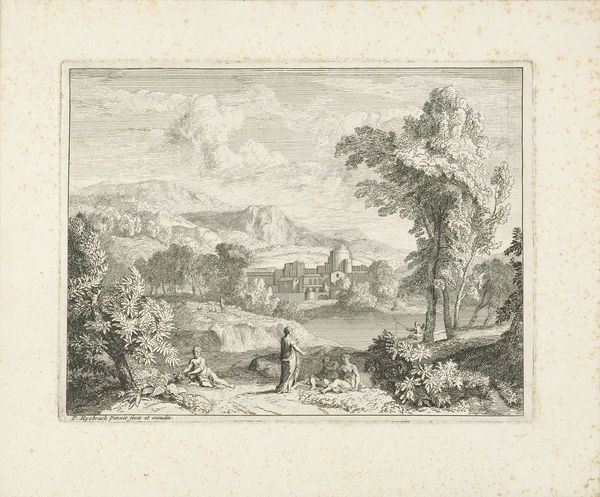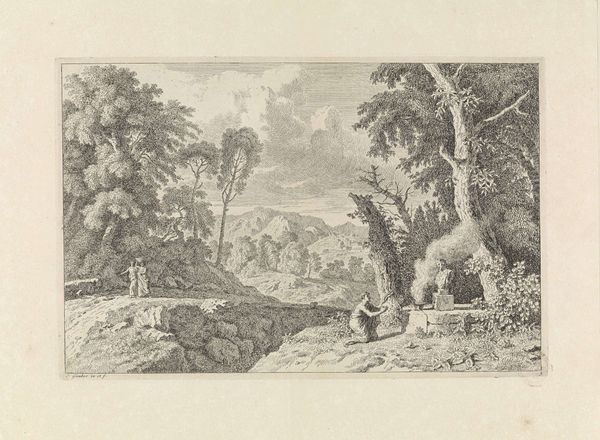
print, engraving
# print
#
landscape
#
genre-painting
#
engraving
#
realism
Dimensions: height 225 mm, width 200 mm
Copyright: Rijks Museum: Open Domain
Jacobus Cornelis Gaal’s etching presents us with a pastoral scene featuring cows and sheep near a bridge, rendered in 1822. The reclining animals in the foreground evoke a sense of tranquility, but these figures carry deeper symbolic resonance. Cows, historically linked to fertility and nourishment, and sheep, often representing innocence and sacrifice, invite contemplation. Consider the “pastoral” motif across time, from classical Arcadia to contemporary landscapes; it continuously resurfaces, embodying humanity’s yearning for a simpler existence. The bridge, as a symbol of transition, reminds us of the Roman pontifex, the bridge-builder, who also held sacred duties, linking the earthly and divine. These symbols resonate beyond mere representation. They engage our collective memory, tapping into archetypal desires and fears linked to nature's bounty and the idyllic life. Such imagery, charged with historical and cultural significance, operates on a subconscious level, inviting us to reflect on the cyclical nature of human experience.
Comments
No comments
Be the first to comment and join the conversation on the ultimate creative platform.
